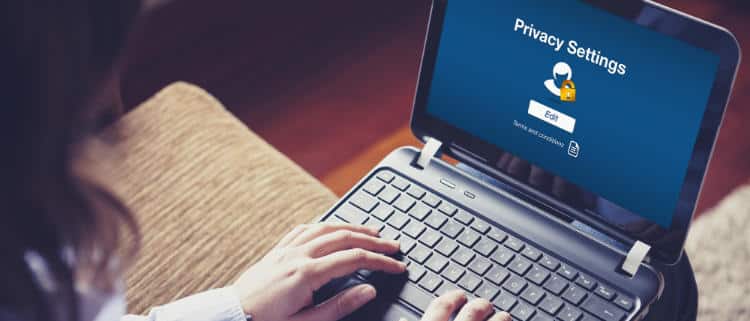
5 Ways to Instantly Enhance Your Online Privacy
5 Ways to Instantly Enhance Your Online Privacy
Do you run the risk of a cybersecurity breach? Here’s what you can do to immediately build your online privacy and security to help avoid an attack during your personal day to day use of the internet.
If you want to see the biggest demonstration of how things have changed over the last two decades, take a look at how often we use technology.
Checking the news, paying bills, finding someone to design your website… even running your business can be done online. It makes living life that much easier. It also makes getting hacked and exposing your online privacy easier too.
If you aren’t sure if you run the risk of a cybersecurity breach or want to take extra precaution to prevent one at your business, here are 5 ways to instantly enhance your online privacy. Continue reading to learn more!
1. Password Security
The easiest precaution you can take when ensuring your online privacy is using different passwords for every account you have. Not only should each password differ, but they should all include an uppercase letter, a lowercase letter, a number, and a symbol.
For accounts that are important or have vital information such as your bank account or email, set up a verification system in addition to your password. This will send a one-time text or email to confirm your identity and prevent any security threats.
2. Privacy Settings
Although we use social media mostly for browsing to see what friends and family are up to and sharing pictures, it is one of the biggest ways to share personal information – whether you realize it or not.
Updating your privacy settings to ensure your profile is safe is an important step when protecting your online information. Make sure to do this often; social platforms update frequently which can alter your privacy settings.
Try to avoid free Wi-Fi networks and make sure your router at home is password protected so people won’t have access.
3. Computer Safety
In addition to having separate passwords for all of your accounts, including your WiFi router, you should install an antispyware and firewall system on your computer. If you already have one installed, make sure it is working properly.
This is extremely important for business owners who run the majority of their business online; keeping pertinent information on work computers such as databases and encrypted information safe. Having encrypted information ensures if files are ever stolen they won’t be in plain text, or readable.
4. Public Computers
Whether you are at the public library or a friends house, unless you are at home on your personal computer don’t forget to log out of your accounts. Staying logged in on public computers gives anyone access to your accounts and personal information.
Instead, use the offered guest settings. Sometimes, certain websites will even ask if the computer you are using is a trusted computer and if it should remember the password. Make sure to click “no” and don’t forget to log out when you’re finished.
5. Spam Links
Sometimes we try to visit websites or click on emails that are “phishing threats.” These usually come from trusted brands or people we know, which is why we feel it’s safe to click on them, when in fact they are attempts to get our personal information. Clicking on these links will take you to a fake website controlled by online hackers.
If you think a link or website might be fake, don’t click on it. Most antispyware will warn you if a website is unsafe; if it doesn’t, you can hover your mouse over the link to see where it will take you. If the link says you will be redirected to your banking site, but the location says something like “hfieo88.net”, avoid the link.
Online Privacy
Despite social media and the online world offering so many benefits, it also gives others a chance to steal our private information. Taking the right steps in protecting your online privacy is important no matter where you are.
At Jonesen, we work extremely hard to protect you website from online threats. But still, there are security issues that only you can protect yourself from. We view these best practices as a supplement to our great web security.
If you are interested in learning how to run your online business or need help designing your website, contact us for more information or visit our website!
Share this Post